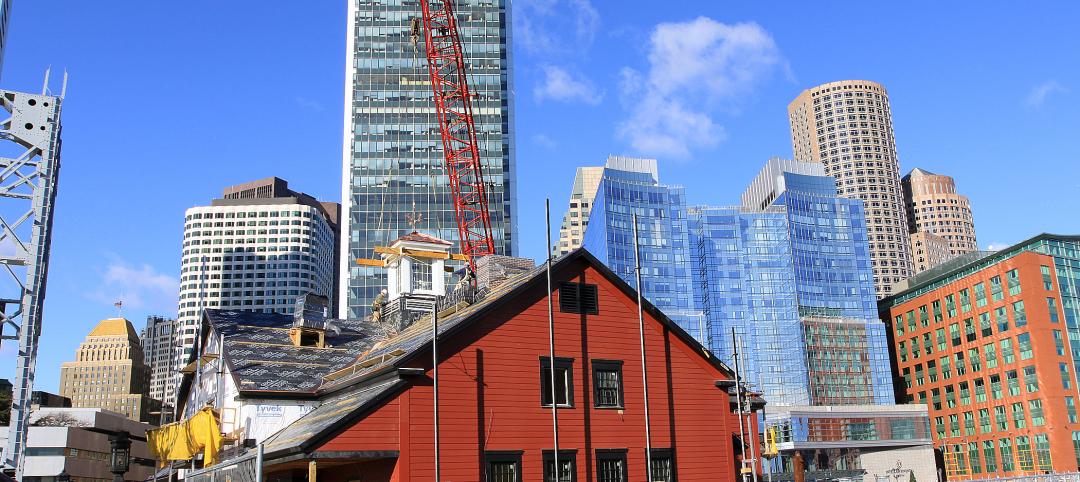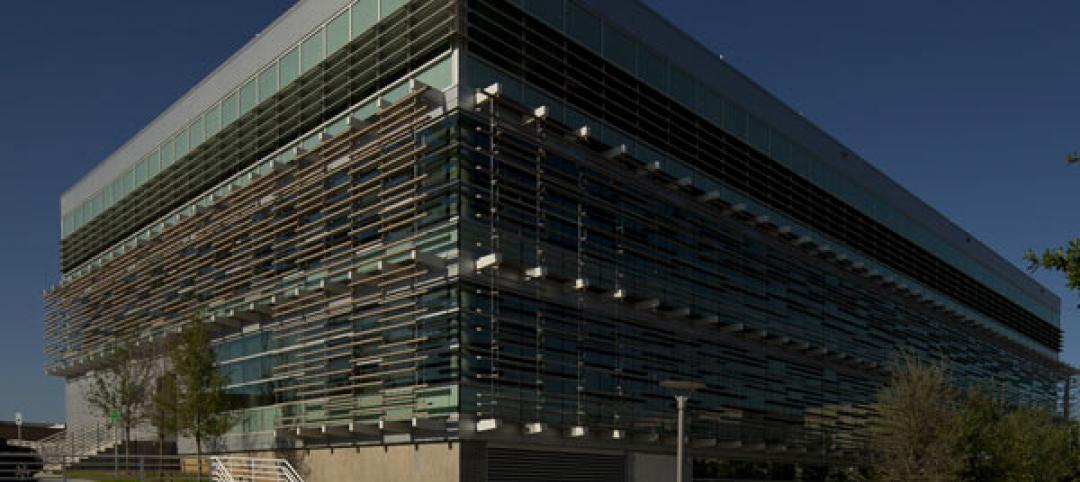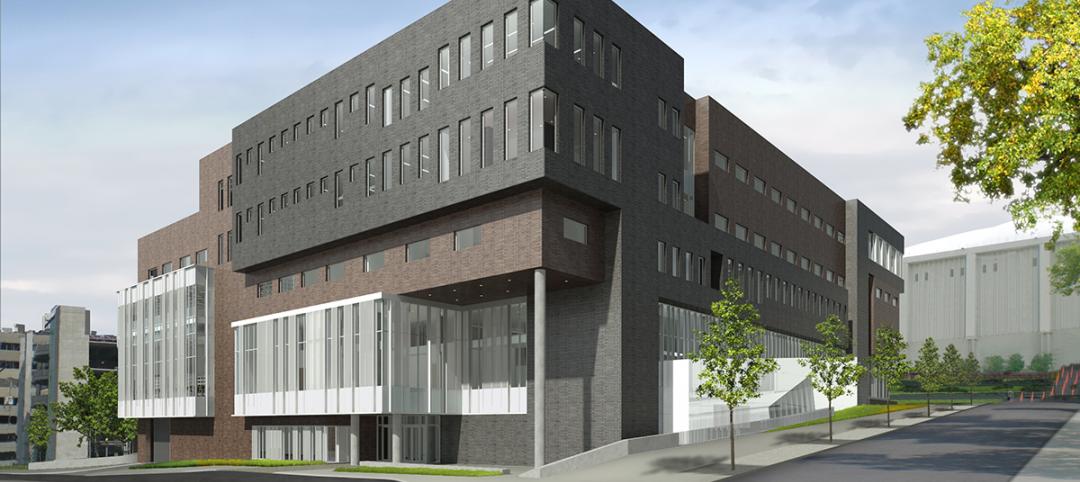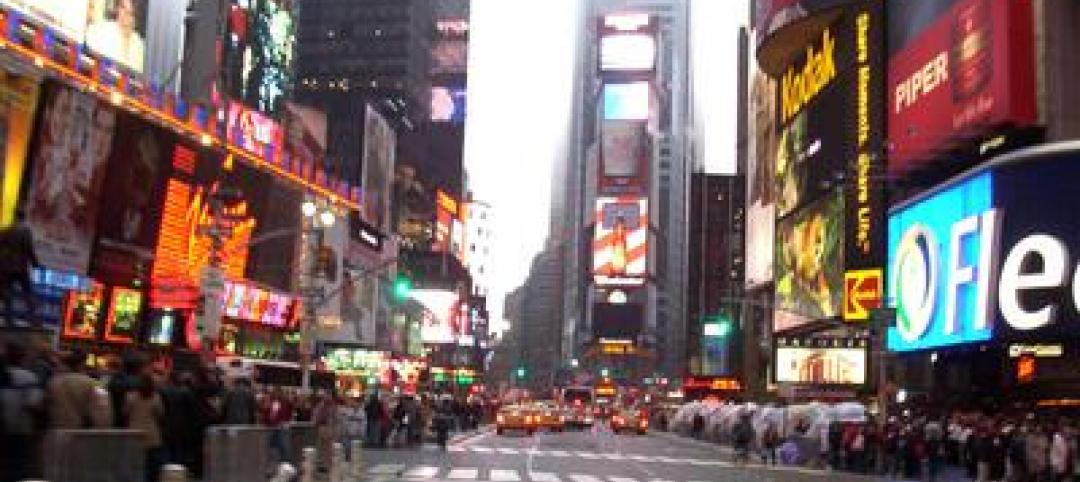The American Institute of Architects’ (AIA) Board of Directors has approved a landmark resolution—championed by AIA members—that defines immediate and long-term efforts to engage the architectural profession in the fight against climate change.
“This is a defining moment for the Institute,” said 2019 AIA President William Bates, FAIA. “We are making this our top priority in order to address the crisis our communities face. Moving the needle on this critical issue—that threatens the future of our planet and humanity—requires our firm commitment to achieving carbon neutral goals in the built environment and our immediate action. It’s imperative that the industry acts today.”
AIA and its members are rallying the profession to do more to fight climate change as buildings are one of the largest contributors to greenhouse gases. Moving forward, AIA will build on its more than 20 years of work supporting the design of sustainable and resilient communities by establishing goals to support mitigation and adaptation using the tenets of the comprehensive and holistic COTE Top Ten framework, now known as the AIA Design Excellence Framework.
Initially, AIA will focus its efforts on designing for energy, economy, and equitable communities. Additionally, the Institute will continue to encourage participation in the AIA’s 2030 Commitment and will work to develop new programs and resources that will support architects in fighting climate change.
The catalyst to the Board’s new landmark initiative was a resolution introduced by architect Betsy del Monte, FAIA, and fifty members of the Institute at AIA’s Conference on Architecture 2019. The resolution calls for revisions to AIA public policies and position statements and advocates that the Institute engage its full membership, clients, lawmakers, and communities in a multi-year education, practice, and advocacy strategy.
Related Stories
| Dec 27, 2011
Suffolk Construction celebrates raising of Boston Tea Party Ships & Museum cupola
Topping off ceremony held on 238th Anniversary of Boston Tea Party.
| Dec 27, 2011
State of the data center 2011
Advances in technology, an increased reliance on the Internet and social media as well as an increased focus on energy management initiatives have had a significant impact on the data center world.
| Dec 27, 2011
USGBC’s Center for Green Schools releases Best of Green Schools 2011
Recipient schools and regions from across the nation - from K-12 to higher education - were recognized for a variety of sustainable, cost-cutting measures, including energy conservation, record numbers of LEED certified buildings and collaborative platforms and policies to green U.S. school infrastructure.
| Dec 21, 2011
DOE report details finance options for PV systems in schools
The report examines the two primary types of ownership models used to obtain PV installations for school administrators to use in selecting the best option for deploying solar technologies in their districts.
| Dec 21, 2011
AIA Chicago & AIA Chicago Foundation 2011 Dubin Family Young Architect Award announced
The Dubin Family Young Architect Award is bestowed annually and recognizes excellence in ability and exceptional contributions by a Chicago architect between the ages of 25 and 39.
| Dec 21, 2011
Few silver linings for construction in 2012
On the brighter side, nearly half of respondents (49.7%) said their firms were in at least “good” financial health, and four-fifths (80.2%) said their companies would at least hold steady in revenue in 2012.
| Dec 21, 2011
Hoboken Terminal restoration complete
Restoration of ferry slips, expanded service to benefit commuters.
| Dec 21, 2011
BBI key to Philly high-rise renovation
The 200,000 sf building was recently outfitted with a new HVAC system and a state-of-the-art window retrofitting system.
| Dec 20, 2011
Gluckman Mayner Architects releases design for Syracuse law building
The design reflects an organizational clarity and professional sophistication that anticipates the user experience of students, faculty, and visitors alike.
| Dec 20, 2011
Research identifies most expensive U.S. commercial real estate markets
New York City, Washington, D.C. and San Mateo, Calif., rank highest in rents.

















